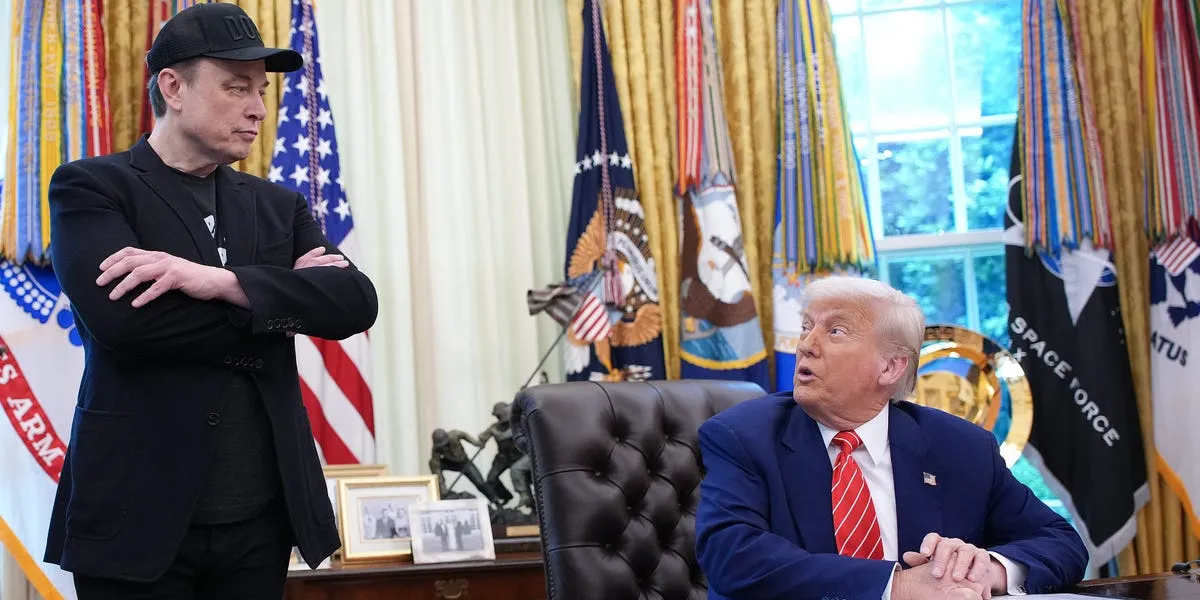
On Thursday, President Donald Trump made a statement regarding the federal subsidies that Elon Musk's companies have been receiving, asserting that he would not interfere with these financial benefits. Trump emphasized his desire for Musk's continued prosperity. However, Musk countered these claims in an X post on the same day, asserting that the so-called 'subsidies' do not actually exist. He pointed out that during the Trump administration, significant clean energy incentives had been eliminated or given expiry dates, while substantial subsidies for the oil and gas industry remained intact.
As a result of these changes, Musk's electric vehicle company, Tesla, is already feeling the financial strain. During its recent earnings call, Tesla revealed that the removal of the $7,500 EV credit under Trump's "One Big Beautiful Bill" would negatively impact its sales in the United States. Vaibhav Taneja, Tesla's Chief Financial Officer, noted that the abrupt change has left the company with a limited supply of vehicles available for sale in the US this quarter.
In his X post, Musk defended SpaceX, stating that the company had secured federal contracts based on merit. He claimed that SpaceX is providing superior services at a lower cost, warning that shifting these contracts to other aerospace companies would jeopardize astronaut safety and potentially double taxpayer expenses. Despite the ongoing conflict, the White House, Tesla, and SpaceX did not respond to requests for comments on the situation.
Once a vocal supporter of Trump during the previous presidential campaign, Musk has witnessed a significant shift in their relationship over recent months. Musk reportedly invested at least $277 million in support of Trump and other GOP candidates for the upcoming 2024 elections. Initially, after Trump's victory in November, Musk even took on a role in the White House, leading cost-cutting initiatives. However, their alliance began to fray when Musk publicly criticized Trump's signature tax bill on June 5, describing it as a "MOUNTAIN of DISGUSTING PORK." He also controversially claimed credit for Trump's electoral success, leading to accusations of ingratitude.
Following Musk's comments, Trump threatened to cancel Musk's government contracts in a post on Truth Social, declaring it an easy way to save money. This prompted Musk to respond with a threat of his own, suggesting he would decommission SpaceX's Dragon spacecraft, which is critical for NASA missions. However, he later walked back that threat, expressing regret for his earlier remarks about Trump. Despite this brief reconciliation, their relationship continued to deteriorate.
On July 1, Trump further criticized Musk's companies, suggesting that Musk should reassess his operations after Musk announced plans to create a new political party aimed at defeating GOP politicians who supported Trump's tax bill. Trump claimed that Musk might be receiving more subsidies than anyone else in history, implying that without them, Musk's enterprises would falter. Musk, in a bold move, challenged Trump to cut all subsidies, stating, "I am literally saying CUT IT ALL. Now."
However, the markets reacted with skepticism to Musk's bravado. Following Trump's post on July 1, Tesla’s stock dropped by 5%, contributing to a year-to-date decline of over 24%. An analysis by The Washington Post revealed that Musk's business empire has benefitted from approximately $38 billion in government contracts, loans, subsidies, and tax credits over the past two decades. During Tesla's earnings call, Musk acknowledged the company was entering a "weird transition period" due to the loss of various incentives in the US, suggesting that this could lead to challenging quarters ahead.